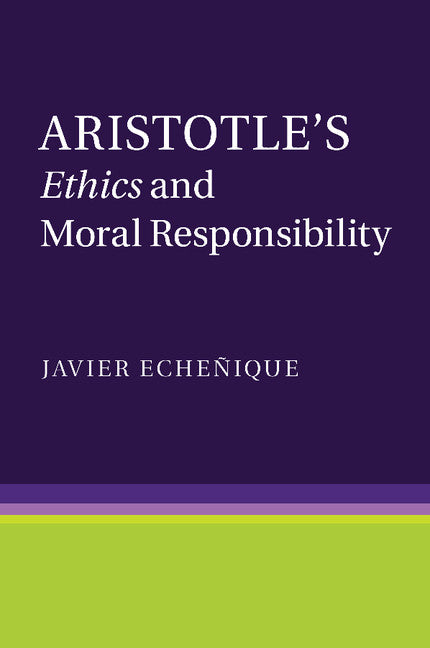Freshly Printed - allow 8 days lead
Couldn't load pickup availability
Aristotle's Ethics and Moral Responsibility
Echeñique discusses Aristotle's views on moral agency and voluntariness and presents a theory of moral responsibility that is both original and compelling.
Javier Echeñique (Author)
9781107499652, Cambridge University Press
Paperback / softback, published 12 February 2015
218 pages
23 x 15.3 x 1.4 cm, 0.33 kg
'Javier Echeñique presents a meticulous examination of Aristotle's doctrine of moral responsibility.' Philosophy in Review
Aristotle's Ethics develops a complex theory of the qualities which make for a good human being and for several decades there has been intense discussion about whether Aristotle's theory of voluntariness, outlined in the Ethics, actually delineates what modern thinkers would recognize as a theory of moral responsibility. Javier Echeñique presents a novel account of Aristotle's discussion of voluntariness in the Ethics, arguing - against the interpretation by Arthur Adkins and that inspired by Peter Strawson - that he developed an original and compelling theory of moral responsibility and that this theory has contributed in important ways to our understanding of coercion, ignorance and violence. His study will be valuable for a wide range of readers interested in Aristotle and in ancient ethics more broadly.
Introduction
1. Against the Strawsonian interpretation: the negative argument
2. Aristotle on ethical ascription: the positive argument
3. The definitions of violence
4. Coercion as justification and excuse 1: the Ethica Eudemia
5. Coercion as justification and excuse 2: the Ethica Nicomachea
6. Factual error and the source of blame
7. The pain condition.
Subject Areas: Ethics & moral philosophy [HPQ], Western philosophy: Ancient, to c 500 [HPCA], Philosophy [HP], Classical history / classical civilisation [HBLA1], Ancient history: to c 500 CE [HBLA]


